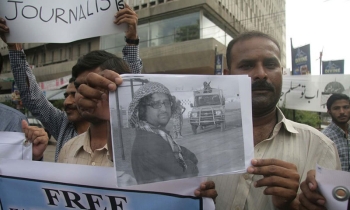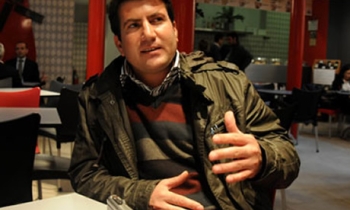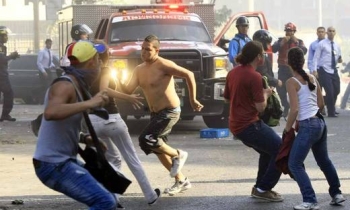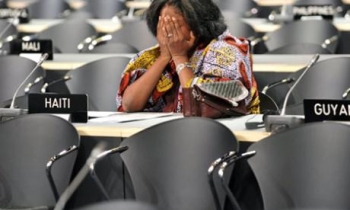The BBC suspended several editorial staff over the phone-in scandal today as Scotland Yard revealed the Corporation may face a criminal investigation.
A BBC statement said: "We can confirm that a small number of staff have been asked to step aside from their duties whilst we review issues surrounding the incidents referred to yesterday.
"We would like to stress that this should not be taken to mean that we have already made a judgment in the case of the staff concerned. This is in line with BBC's policy and procedures and is consistent with our duty of care to individuals."
The staff were not named but are said to be at the level of executive producer or above.
The news came as Metropolitan Police Commissioner Sir Ian Blair said he would meet the head of the Yard's specialist crime directorate, Deputy Assistant Commissioner Steve House, later today to discuss the matter.
He did not rule out a formal police investigation, saying: "It is probably a bit too early to tell at the moment, but if we are requested to investigate it we will.
"I think it needs a bit more time to understand what's going on."
The BBC admitted yesterday that six shows, including charity appeals Comic Relief, Sports Relief and Children In Need, had deceived viewers by using fake competition winners for viewer phone-ins.
Unions had warned the BBC not to make junior production staff scapegoats for the crisis.
Bectu attacked the Corporation for "feigning" surprise that workers had not blown the whistle on the string of viewer deceptions.
Gerry Morrissey, general secretary of Bectu, said today: "How can the BBC expect employees who have little or no job security to expose the activities of anyone else?
"This situation is of senior management's making. We will strongly defend any of our members who are disciplined, because the problem lies at the top."
Bectu claimed there was reduced investment in staff training and a culture of short-term contracts at the BBC which had affected job security.
The union said it understood only 10% of the BBC's workforce was over the age of 50.
Mr Morrissey commented: "There has been a deliberate policy of employing fewer people over the age of 50, so there are more and more less experienced, lower paid, more casualised workers at the Corporation."
The National Union of Journalists called for an end to casualisation in the media industry in the wake of the BBC disclosures.
General secretary Jeremy Dear said: "It is time to end the endemic casualisation which puts enormous pressure on individuals to deliver results rather than maintaining ethical standards.
"Staff shortages right across the industry are largely to blame. If you cut staff you are inevitably going to end up cutting corners.
"Broadcasters must move away from short-term contracts and recruit staff who are secure, properly trained and given the time and confidence to make programmes to the highest standards."
The BBC suspended all phone-in competitions from midnight last night.
The deceptions affected Children In Need, Comic Relief, Sport Relief, children's programme TMi, The Liz Kershaw Show on BBC 6 Music and the World Service's White Label pop programme.
In some cases, members of the production team went on air to pose as winning callers. In others, the name of a fictitious winner was read out. And The Liz Kershaw Shaw was pre-recorded but presented as if it were live, with members of the production team and their friends posing as winners of a competition which never existed.
The six cases came to light after BBC director-general Mark Thompson ordered a review into one million hours of broadcasting stretching back to January 2005.
He has warned that more examples may emerge.
Mr Thompson described the situation as "totally unacceptable" and told staff: "We must now put our house in order."
But he said of those responsible: "A group of people has taken it upon themselves to keep the programme on the air by this kind of, what they might have regarded at the time as, a white lie."









